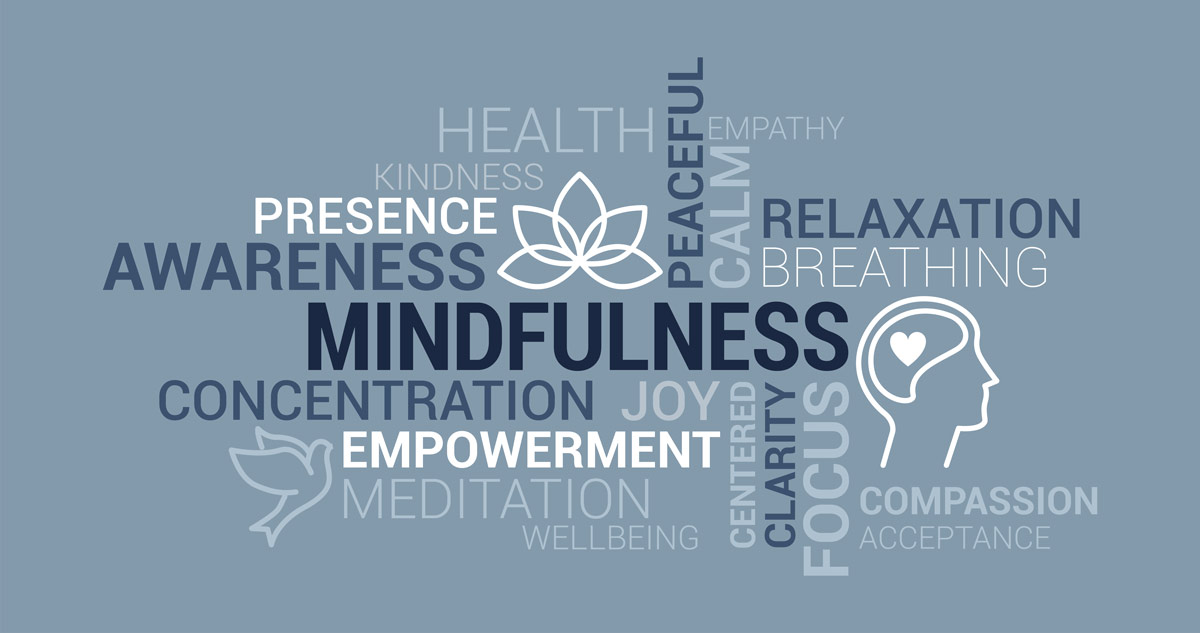Over the years mindfulness has become more common in our society. There are apps to guide us through the practice and it is even being integrated in schools to help teach kids how to manage emotions and stress. But what is mindfulness? Mindfulness is the practice of being both aware of the present and simultaneously accepting the present circumstances. Many times we find ourselves lost in thought as we carry out other activities throughout our day, such as driving a car and not realizing which way we took home or making lunch and not realizing what ingredients were on the sandwich. This is known as “mindlessness” because we are checked out of the present. Just because we are able to do things without paying attention to them does not mean this serves our best interest. Mindlessness is a short distraction from our feelings but often does not allow us to work through the thoughts causing us distress, anxiety, or sadness.
The goal of mindfulness is to recognize what is happening in the present and slow down our awareness to understand our thoughts.
- Understand what we are doing by becoming aware
- Understand why we are doing it
Overall, this can enhance our life experiences and help us remain presently focus based on reality, not the distortions where anxiety lives. Over time, we become aware of our thoughts, are able to confront them in a more rational and wise way as well as learn to be less judgmental of ourselves. Mindfulness originated in ancient Buddhist meditative techniques. It became more integrated in the field of healthcare in the 1980s when treating chronic pain patients and trauma victims. Here are some additional benefits that have been found:
- Lowered stress and emotional reactivity
- Reduced anxiety and negative emotions
- Reduced likelihood of substance-related relapse
- Enhanced relaxation and overall sense of well-being
- Lowered perception of chronic pain
- Increased immune system response
If you are interested in exploring how mindfulness can help you improve your overall functioning or target specific problems in your life, find a therapist that integrates mindfulness into treatment. Angie Harris, LCSW, MAC, MA is certified in Mindfulness Based Stress Reduction. She incorporates mindfulness with other evidenced-based approaches, such as Cognitive Behavioral Therapy (CBT) or Distress Tolerance, to help manage overwhelming emotions and manage anxiety and stress. Learn more about her at http://www.insightactiontherapy.com/therapists/angie-harris/or contact her directly at [email protected]or (703) 646-7664.







